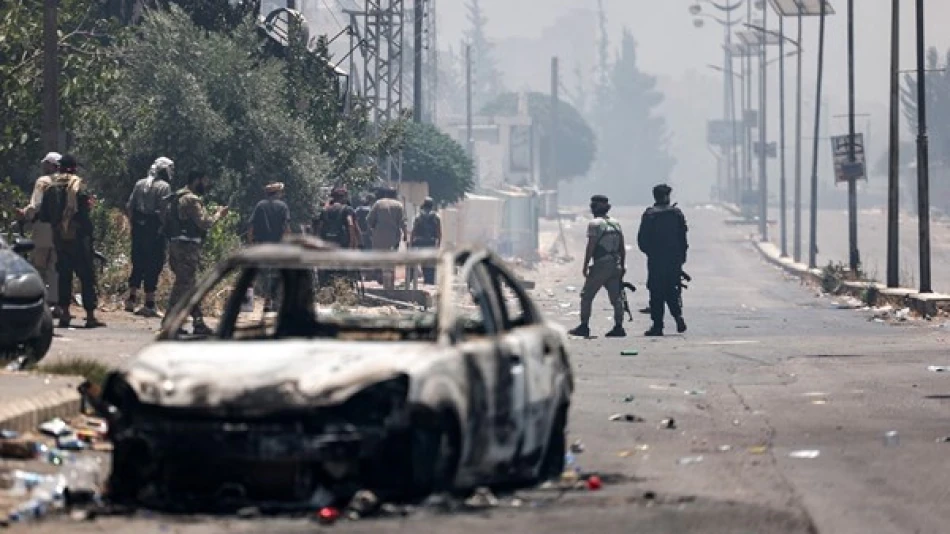
Syrian Presidency Announces Ceasefire in As-Suwayda Governorate
Syria Declares Immediate Ceasefire as Security Forces Deploy to Violence-Torn Sweida Province
The Syrian government announced an immediate nationwide ceasefire and deployed internal security forces to Sweida province following a week of deadly clashes between Bedouin fighters and local groups that reportedly killed around 600 people. The escalation in the southern province highlights the fragility of Syria's security situation more than a decade into its civil war, raising questions about the government's control over peripheral regions.
Government Response to Escalating Violence
Syrian President Bashar al-Assad's administration declared a "comprehensive and immediate ceasefire" on Saturday, calling on "all parties, without exception, to fully comply with this decision and immediately stop all combat operations in all areas." The presidential statement came as internal security forces began deploying throughout Sweida, a predominantly Druze province in southern Syria near the Jordanian border.
The Interior Ministry spokesman confirmed that security forces had started their deployment across the province, signaling Damascus's attempt to reassert control over a region that has experienced relative autonomy throughout much of Syria's conflict.
A Week of Deadly Clashes
The violence erupted approximately one week ago with confrontations between Bedouin fighters and local groups, quickly escalating into broader conflict that devastated the region. The United Nations has called for "independent, swift, and transparent" investigations into the violence, urging an end to the "bloodshed" that has gripped the province.
With an estimated 600 casualties, this represents one of the deadliest outbreaks of violence in Syria's peripheral regions since the height of the civil war. The scale of the death toll underscores how quickly localized disputes can spiral into major security crises in areas where state control remains tenuous.
Sweida's Strategic Significance
Sweida province holds particular importance for the Syrian government due to its location along the Jordanian border and its role as a transit route for both legitimate trade and smuggling operations. The province's Druze majority has maintained a complex relationship with Damascus throughout the conflict, neither fully supporting the government nor joining the opposition.
The Druze community's traditional self-reliance and military capabilities have allowed them to maintain relative independence, making this latest violence particularly concerning for Assad's administration as it seeks to consolidate control over recovered territories.
Implications for Syria's Stability
This outbreak of violence reveals the ongoing challenges facing Syria's reconstruction efforts and the government's struggle to maintain order in regions beyond its core areas of control. The conflict demonstrates how tribal disputes and local grievances can quickly escalate in areas where state institutions remain weak.
The government's rapid response with both military deployment and ceasefire declarations suggests recognition that allowing such violence to continue could encourage similar unrest elsewhere in the country. For international observers, the incident serves as a reminder that Syria's conflict remains far from resolved, despite the government's military victories in recent years.
The UN's call for independent investigations also highlights the continuing international concern over accountability and human rights in Syria, particularly as the government seeks to normalize relations with regional neighbors and attract reconstruction investment.
Most Viewed News

 Layla Al Mansoori
Layla Al Mansoori






